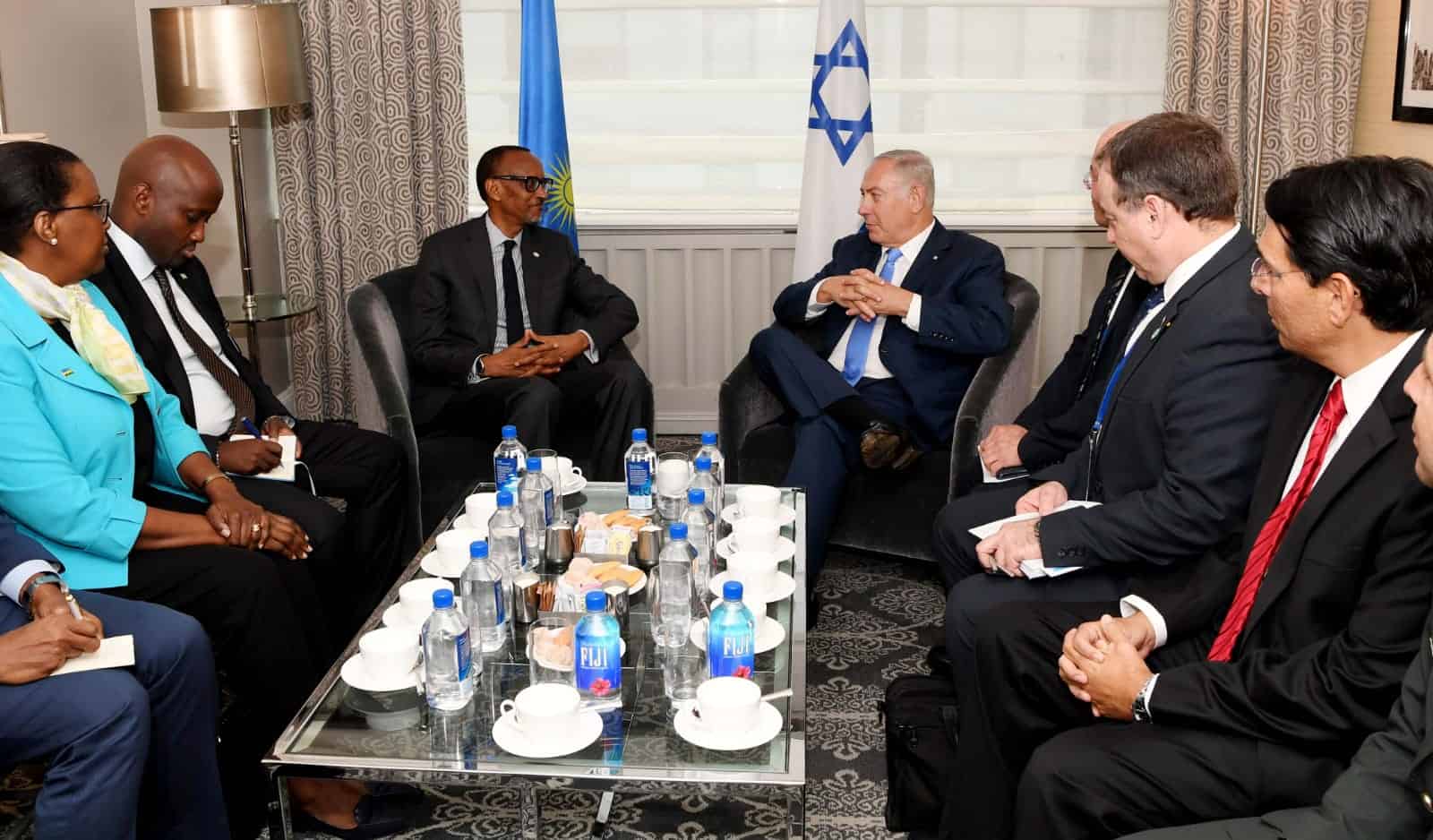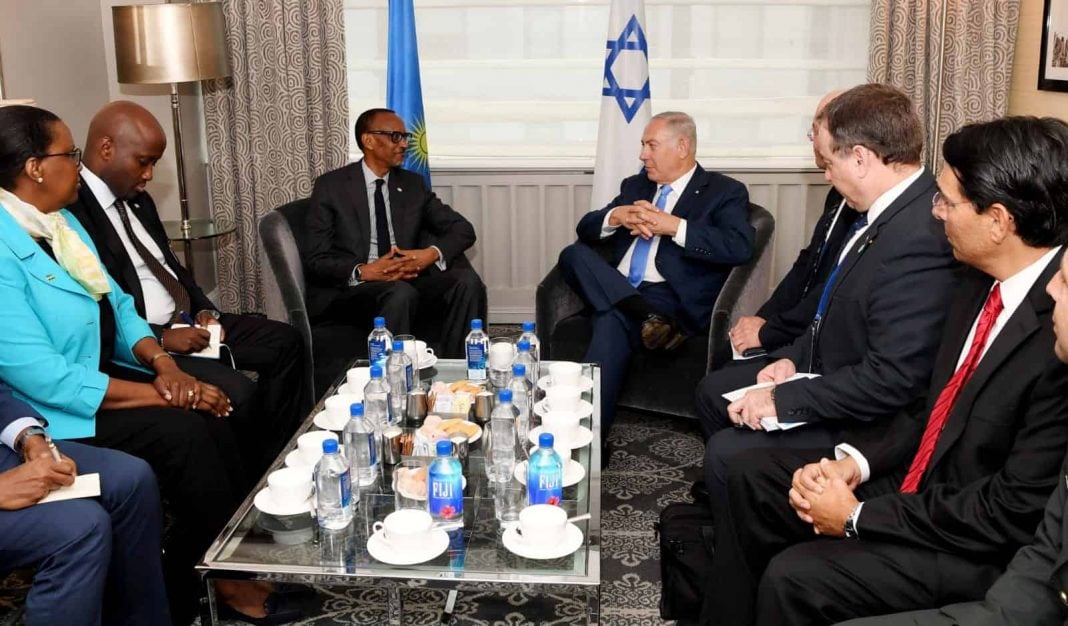
In 2016, Netanyahu stated that ‘Israel is coming back to Africa, and Africa is coming back to Israel’. In January 2019, Netanyahu and Chadian President Idriss Déby officially announced the resumption of diplomatic ties. In February, Israel opened its first embassy in Rwanda. Now, after the election in Israel, it is expected that Netanyahu will host Malian President Soumeylou Boubeye Maiga to restore and heighten diplomatic relations between the two. But why?
Israeli Motivation;
- The Political Dimension
Israel was the most condemned country at the UN in 2018 with numerous resolutions against them for illegal settlements, human right abuses, and the occupation of East Jerusalem. Netanyahu and his nationalist policy combined with the intimate relationship with the US President Donald Trump has led Israel down this path of condemnation and seemingly emboldened Netanyahu who vowed to ‘extend Israeli sovereignty’ and declare Israeli sovereignty over the West Bank and the Golan Heightsprior to the election. In order to ease international pressure, pursue his policy and his promises, Netanyahu seeks to acquire UN votes. Africa has 54 internationally recognised states, for Israel, this is potential votes. Africa has 13 seats in the UN Human Rights Council, only matched by Asia. By improving relations with African states, Israel can elevate its position in the UN and slowly break the united African support for Palestine in the UN. Additionally, Palestine has observer status in the African Union (AU) while Israel has no official status. Tel Aviv wants at least equal status to that of Palestine in the AU.
- The Economic Dimension
By 2025, close to one-fifth of the world’s population will be living in Africa, about half of which in urban areas. Today there are more than one billion people living in Africa, meaning more than one billion consumers. In 2018, six of the ten fastest growing economies were African – Indicating that purchase power and markets will be growing. Naturally, Israel desire to increase exports to a rapidly growing and strengthened economy and consumer-base. Additionally, the African working-age population on average is expected to surpass both India and China by 2034, which is why foreign direct investment in Africa in 2015 was at $60 billion, five times that of in 2000. Naturally, Israel eyes this potential of Israeli exports and investments into infrastructure and technology on the continent. Warmer relations could also allow Israeli aircraft and airlines to use certain African airspace which would increase Israeli tourism and connectedness with South America.
- The Security Dimension
Israel pursue alliances to counter terrorism. Israel works closely with Kenya who battles al-Shabaab and the cooperation has been described as ‘invaluable’ for Kenya. Moreover, the Sahel has increasingly become a hotspot for terrorism, and this is where Israel is now focusing its diplomatic efforts. First Chad, now Mali, and reports state that Israel have eyed Niger as a potential ally. Sudan and Egypt have been used as transit sites for Iranian weapon shipments headed for Gaza. A greater Israeli presence and alliance would increasingly prevent such shipments using Africa as transit. It is also symbolic. Israel is restoring relations with Muslim majority countries showing that the Palestine issue and the state of Israel can be separated.
African Motivation;
- The Technological Dimension
There is a technological dimension that is tied to the array of issues faced by African countries. Israeli expertise lies in agriculture, infrastructure, water management, energy, and defence. With better irrigation and agricultural practice African states will have a better chance of employing and feeding their rapidly growing populations. With better water management more will have access to clean water which is evident in Western Africa, where Israeli companies already have installed pumping and purifying systems which greatly diminished the impact of a cholera outbreak in Cameroon in 2017. Global warming and the water scarcity that comes with it can be mitigated with Israeli expertise in water management. With infrastructure and energy expertise, African development will be stimulated and improve transport and growth while delivering electricity to increasingly rural areas. Defence technology and assistance, described by Kenya as ‘invaluable’, is important to battle terrorism and violence on-the-ground. The potential of Israeli counter-terrorism efforts abroad are evident in Egyptwhere drones, surveillance, and intelligence has been central to the cooperation and success.
- The Political Dimension
Israel is joining the line of those taking interest in Africa. A line the US is yet to join. All those solutions and improvements offered by Israel mentioned above can be offered by others. However, what the others don’t have (namely Russia and China) that Israel does, is a very close and warm relationship with the US. Warmer relations with Israel can be a portal to Washington’s political circles. A membership in those circles could ensure increased economic aid, as well as for leaders like Déby, it would reinforce his political validation and deter possible coups. For many leaders in developing states, it is the US and not the UN that grant or deny political legitimacy. Particularly leaders of non-democratic systems seek US validation. For some, a handshake with Netanyahu is not a road to Tel Aviv but the first leg on the way to Washington.
Expiration
The strategy outlined by Tel Aviv is working. However, this dynamic comes with an expiration date. While terrorism and development are on the rise in Africa, it is convenient to embrace the Israelis for expertise, money, and association. For Israel, it is convenient to leverage the opportunities that exist and emerge in Africa. Hence, there is a notion that Israel can be a short-term solution for Africa states to mitigate risks and stimulate growth until relations are warmer with the US. While for Netanyahu, Africa seems to be a long-term policy to validate his increasingly expansionist policy and improve Israel’s image. Once interests no longer are aligned, relations will sour, again.
Image: Avi Ohayon / GPO / Times of Israel (link)

